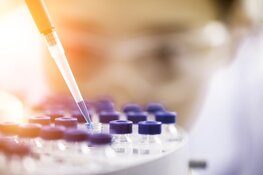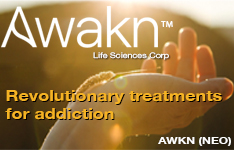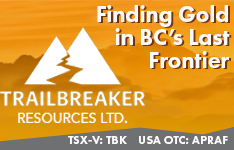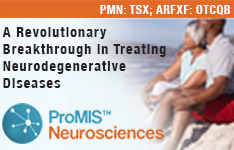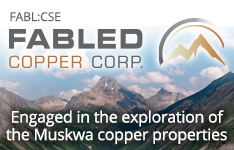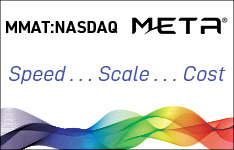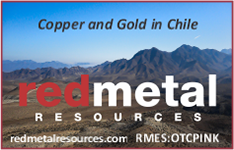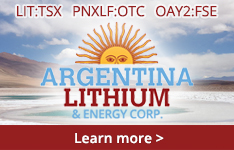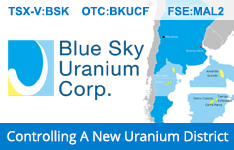Clinical-stage biopharmaceutical drug development company Belite Bio Inc. (BLTE:NASDAQ), which is focused on discovering and developing therapeutics for currently untreatable eye diseases, today announced that "it has commenced enrollment for the U.S. Phase 3 clinical trial of LBS-008 in patients with Stargardt Disease (STGD1), a progressively blinding disease with no approved treatment."
Belite Bio's Chairman and CEO, Dr. Tom Lin, commented, "STGD1 is the most common inherited retinal dystrophy causing blurring and/or loss of central vision in both adults and children…With over 30,000 STGD1 patients alone in the U.S., we have a treatment with the potential to address a large unmet need with a clear clinical pathway to bring hope to patients afflicted with this debilitating disease."
The company explained that LBS-008 (Tinlarebant) is an orally administered tablet for the treatment of Stargardt disease (STGD1) and Dry AMD. The firm noted that currently, there are no U.S. Food and Drug Administration (FDA) approved treatments for either STGD1 or Dry AMD. Belite Bio advised that "its lead asset, LBS-008, has been granted fast track designation and rare pediatric disease designation (RPD) in the U.S., and orphan drug designation (ODD) in both the U.S. and Europe for STGD1."
The company previously conducted several Phase 1 clinical studies of LBS-008 for use in healthy adults, including single and multiple ascending dose trials. The purpose of these trials was to evaluate the safety and efficacy of LBS-008 in single dosage ranges from 10-50 mg in the U.S. and 25-400 mg in Australia.
Belite Bio is presently conducting two separate ongoing two-year studies of LBS-008, which include a Phase 2 trial and the global Phase 3 DRAGON trial in adolescent STGD1 subjects.
The company stated that preliminary data after the first six months in the Phase 2 trial of LBS-008, which includes 13 patients in Australia and Taiwan, shows that eight of the 13 patients (61.5%) enrolled in the study demonstrated "a gain in best-corrected visual acuity (BCVA) in at least one eye, with two of the eight registering a BCVA gain in both eyes." Additionally, none of the participants displayed any atrophic lesions, though one subject showed signs of a fairly small retinal lesion after six months of treatment.
The Phase 3 DRAGON study is a randomized multi-center study that is being conducted in the U.S., the U.K., Australia, Belgium, Germany, Hong Kong, Switzerland, and Taiwan. In total, the trial expects to enroll around 60 adolescent STGD1 patients who are to be randomized 2:1 (active: placebo).
Belite Bio indicated that due to the similar accumulation of toxic bisretinoids that occurs with Dry AMD progression, the company believes that LBS-008 demonstrates potential as an effective treatment for Dry AMD as well as STGD1. Therefore, the firm said that during Q4/22, it intends to commence a Phase 2/3 clinical trial specifically for Dry AMD.
The company explained that Stargardt disease (STGD1) is the most common inherited retinal dystrophy in both adults and children, which is caused by a dysfunctional retina-specific gene (ABCA4). Persons with STGD1 experience blurred or a loss of central vision due to the accumulation of massive amounts of toxic vitamin A byproducts called "bisretinoids" in the retina that causes retinal cell death and leads to a progressive loss of central vision. Bisretinoids have unique fluorescent properties that allow of ophthalmologists to identify and monitor STGD1 progression.
The firm noted that dry age-related macular degeneration (Dry AMD) presently has no approved treatments. The disease affects around 11 million individuals in the U.S. alone and nearly 200 million people worldwide. The report indicated that globally medical treatment costs for Dry AMD total about US$255 billion.
The company advised that STGD1 and Dry AMD share similar pathophysiology as both diseases are characterized by "an excessive accumulation of cytotoxic bisretinoids, retinal cell death, and loss of vision." People with STGD1 and dry AMD typically undergo slow but progressive vision loss due to geographic atrophy until the disease ultimately reaches the macula at the center of the eye.
Belite Bio is a clinical-stage biopharmaceutical firm headquartered in San Diego, Calif. The company is engaged in researching and developing novel medicines for use in treating eye diseases that are currently considered to be largely untreatable, including autosomal recessive Stargardt (STGD1) and atrophic age-related macular degeneration (Dry AMD), as well as other metabolic diseases such as non-alcoholic fatty liver disease and type 2 diabetes.
The company's technology is centered around the use of serum retinol-binding protein 4 (RBP4) in order to reduce and maintain the level of RBP4, which is instrumental in carrying retinol to the eye from the liver which serves to reduce the accumulation of vitamin A by-products in ocular tissue.
Belite Bio began the day with a market cap of around $531.25 million, with approximately 24.8 million shares outstanding. BLTE shares opened over 2% higher today at $23.10 (+$0.53, +2.35%) over Friday's $22.57 closing price. The stock traded today between $23.10 and $27.00 per share and closed for trading at $26.84 (+$4.27, +18.92%).
| Want to be the first to know about interesting Biotechnology / Pharmaceuticals investment ideas? Sign up to receive the FREE Streetwise Reports' newsletter. | Subscribe |
Disclosure:
1) Stephen Hytha wrote this article for Streetwise Reports LLC and provides services to Streetwise Reports as an independent contractor. He or members of his household own securities of the following companies mentioned in the article: None. He or members of his household are paid by the following companies mentioned in this article: None.
2) The following companies mentioned in this article are billboard sponsors of Streetwise Reports: None. Click here for important disclosures about sponsor fees. As of the date of this article, an affiliate of Streetwise Reports has a consulting relationship with: None. Please click here for more information. The information provided above is for informational purposes only and is not a recommendation to buy or sell any security.
3) Comments and opinions expressed are those of the specific experts and not of Streetwise Reports or its officers. The information provided above is for informational purposes only and is not a recommendation to buy or sell any security.
4) This article does not constitute investment advice. Each reader is encouraged to consult with his or her individual financial professional and any action a reader takes as a result of information presented here is his or her own responsibility. By opening this page, each reader accepts and agrees to Streetwise Reports' terms of use and full legal disclaimer. This article is not a solicitation for investment. Streetwise Reports does not render general or specific investment advice and the information on Streetwise Reports should not be considered a recommendation to buy or sell any security. Streetwise Reports does not endorse or recommend the business, products, services or securities of any company mentioned on Streetwise Reports.
5) From time to time, Streetwise Reports LLC and its directors, officers, employees or members of their families, as well as persons interviewed for articles and interviews on the site, may have a long or short position in securities mentioned. Directors, officers, employees or members of their immediate families are prohibited from making purchases and/or sales of those securities in the open market or otherwise from the time of the decision to publish an article until three business days after the publication of the article. The foregoing prohibition does not apply to articles that in substance only restate previously published company releases.
6) This article does not constitute medical advice. Officers, employees and contributors to Streetwise Reports are not licensed medical professionals. Readers should always contact their healthcare professionals for medical advice.




